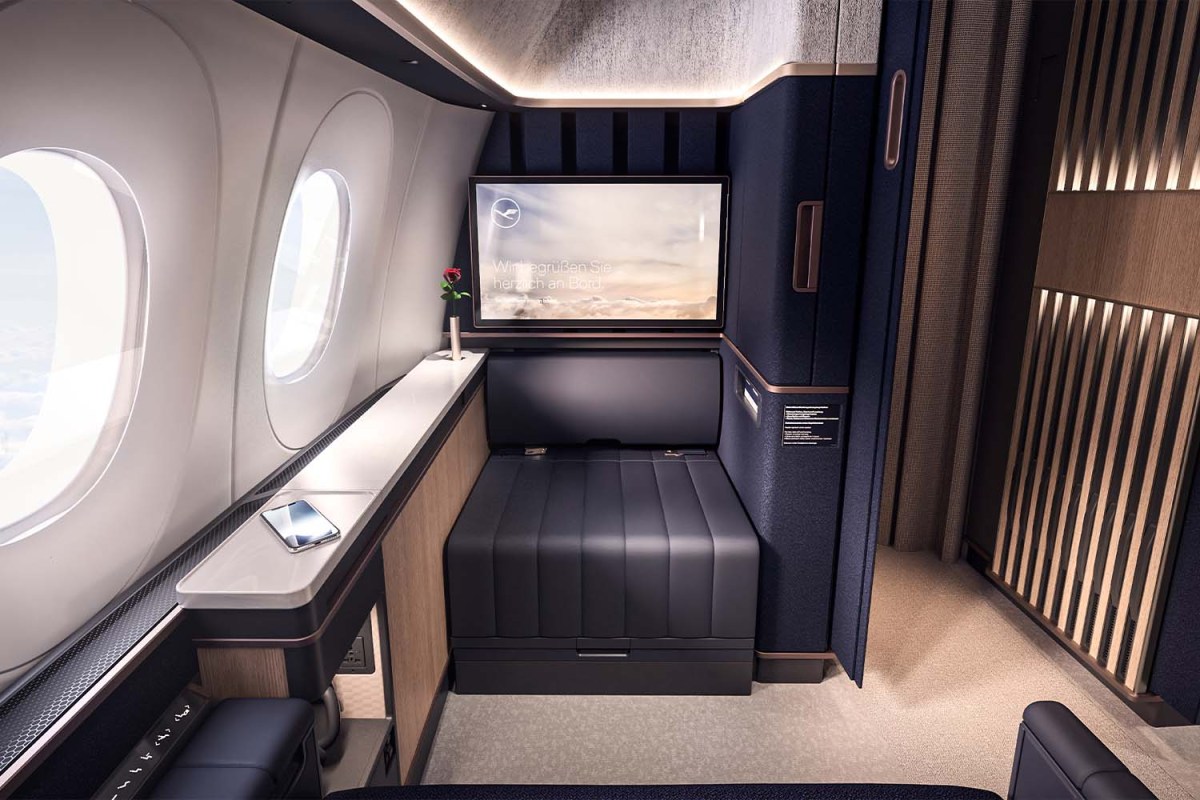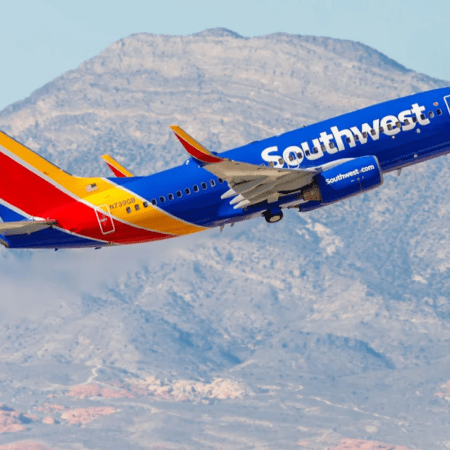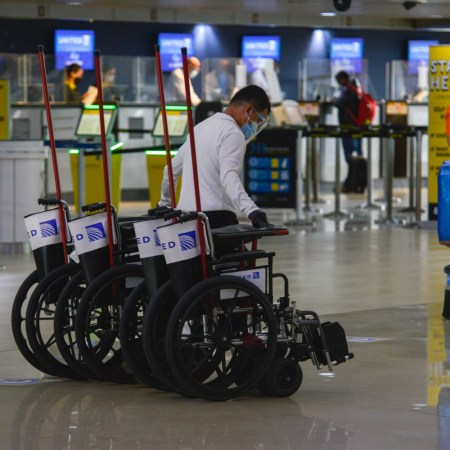Late last week, German carrier Lufthansa announced a new product generation — “Allegris” — which is set to include new experiences in all classes…but none more so than first class.
“For the very first time in the company’s history, the Lufthansa First Class is receiving spacious suites that offer nearly ceiling-high walls that can be closed for privacy. The seat, which is almost one meter wide, can be converted into a large, comfortable bed,” the carrier announced in a release. “All seats and beds are positioned in the direction of flight, without exception. In addition to many other storage options, there is a large, personal wardrobe in every suite. Passengers inhabiting this new First Class can even remain in their suite as they prepare for sleep and change into Lufthansa First Class pajamas.”
Safe to say the suites are nothing if not lavish. Featuring higher walls and sliding doors that close completely, they also have 27-inch monitors and a “large dining table” option, so passengers traveling together can sit across from each other as they would in a restaurant. The renderings? Crazy. It’s unclear how much fare will cost but, based on those alone, we’d be willing to bet a pretty penny.
But economy passengers fear not — the carrier plans to throw you a (relatively sizable) bone, too. Back in 2021, Lufthansa introduced the “Sleeper Row” in economy on long haul flights, which effectively allowed passengers in the first few rows to recline further back. As part of Allegris, the carrier will integrate “Sleeper Row 2.0” — which will involve “fold[ing] up a leg rest and utiliz[ing] the additional mattress on offer, for rest and relaxation on a reclining surface that is 40% larger compared to the original ‘Sleeper’s Row.’”
The concepts are said to debut in 2023, though the company plans to inject — by the Lufthansa Group’s own estimate — a total of somewhere in the vicinity of 2.5 billion euros into product and service by 2025.
This comes on the heels of Air New Zealand announcing earlier this year its plans to install sleep pods on some of its Boeing 787 Dreamliners, which would allow economy passengers access to a fully flat bed sleeping experience for what the airline is claiming to be the first time ever. Both are testaments to the notion that, more than ever, airlines are focusing their efforts on the customer experience, particularly where long haul flights are involved.
That said, the effort is hardly unanimous. In fact, one airline passenger advocacy group called FlyersRights.org has been lobbying for the creation of minimum seat dimensions on U.S. aircrafts since 2015. Despite the legislation, and being given ample time to establish a standard, the issue has gone largely unaddressed by the FAA (save for a few studies). Further, airplane bathrooms have been shrinking for the better part of the last decade. According to a 2018 report from The Washington Post, on many of the newer planes flown by American, Delta and United airlines, the bathrooms in coach are just 24 inches wide. That’s almost 10 inches smaller than many older aircrafts — and not exactly ADA-friendly.
Of course, the Lufthansa and Air New Zealand comparison to American and Delta is hardly apples-to-apples, but are decently sized lavatories and minimum seat dimensions across the industry too much to ask for? If we can have convertible seat-to-beds, surely we can have that much — and not just on long haul flights. Though, if there is a silver lining to be gleaned here, it’s this: there are airlines (frontrunners, if you will) making huge strides where in-flight comfort is concerned. For passengers that can afford it, that is. And also not in the U.S.
Thanks for reading InsideHook. Sign up for our daily newsletter and be in the know.


















